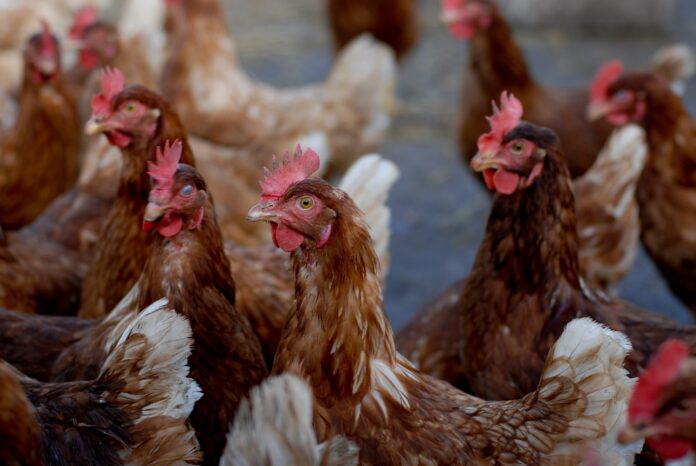REYNOLDSBURG, Ohio — Highly pathogenic avian influenza, or bird flu, has been detected in a backyard flock in Ashland County and a commercial chicken flock in Defiance County.
The positive detections were confirmed by the United States Department of Agriculture’s Animal and Plant Health Inspection Service. The samples were first tested at the Ohio Department of Agriculture’s Animal Disease Diagnostic Laboratory and confirmed at the APHIS National Veterinary Services Laboratories in Ames, Iowa.
Highly pathogenic avian influenza is a highly contagious virus that spreads quickly and can be fatal to flocks and devastating to poultry owners, both commercial and non-commercial. HPAI can infect poultry (such as chickens, turkeys, pheasants, quail, domestic ducks, geese and guinea fowl) and is carried by free flying waterfowl such as ducks, geese and shorebirds.
State officials quarantined the affected premises, and birds on the properties will be depopulated to prevent the spread of the disease. Federal and state partners are working jointly on additional surveillance and testing in areas around the affected flocks. Surveillance activities will be conducted in a 10-kilometer zone around the infected premises.
Public health
The recent detections do not present an immediate public health concern, according to the Centers for Disease Control and Prevention. No human cases have been detected in the United States.
According to the USDA, it cannot be transmitted through properly cooked meats or eggs. Products from any HPAI-affected flocks are prohibited from entering the food system. As a reminder, the proper handling and cooking of all poultry and eggs to an internal temperature of 165 degrees Fahrenheit is recommended as a general food safety precaution.
Prevention
The best defense against HPAI is vigilant disease prevention. Prevent contact with wild birds and waterfowl. Keep birds indoors when possible. Keep visitors to essential personnel only. Only allow those who care for your poultry to have contact with them and make sure they follow biosecurity principles.
Wash your hands before and after contact with live poultry. Use soap and water. If using a hand sanitizer, first remove manure, feathers and other materials from your hands. Provide disposable boot covers (preferred) or disinfectant footbaths for anyone having contact with your flock.
If using a footbath, remove all droppings, mud or debris from boots and shoes using a long-handled brush before stepping in. Always keep it clean.
Establish a rodent and pest control program. Deliver, store and maintain feed, ingredients, bedding and litter to limit exposure to and contamination from wild animals. Use drinking water sourced from a contained supply (well or municipal system). Do not use surface water for drinking or cleaning.
Clean and disinfect tools and equipment before moving them to a new poultry facility. Trucks, tractors, tools and equipment should be cleaned and disinfected prior to entering or exiting the property. Do not move or reuse anything that cannot be cleaned.
Look for signs of illness. Monitor egg production and death loss, discoloration and/or swelling of legs, wattles and combs, labored breathing, reduced feed/water consumption.
If you notice any symptoms or unexpected deaths in your flock, report them immediately to the Ohio Poultry Association at 614-882-6111, or the Ohio Department of Agriculture during regular business hours at 614-728-6220 and after hours at 888-456-3405.











Thank you for your news coverage.
Please note: there was a human case of H5N1 bird flu in the U.S. (the same avian influenza virus strain) this spring in a Colorado man. He was working at a commercial facility which was depopulating their flock; he did recover. The people at highest risk of contracting the virus are those handling infected birds.